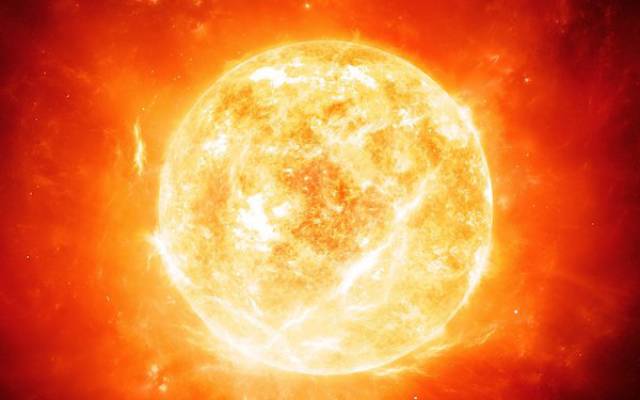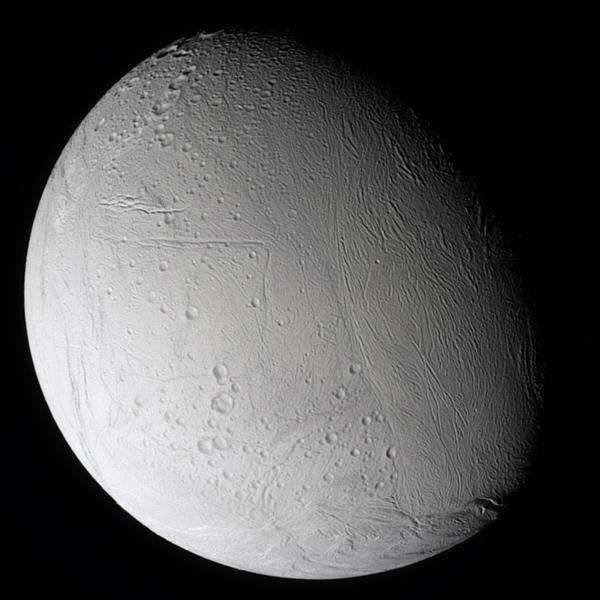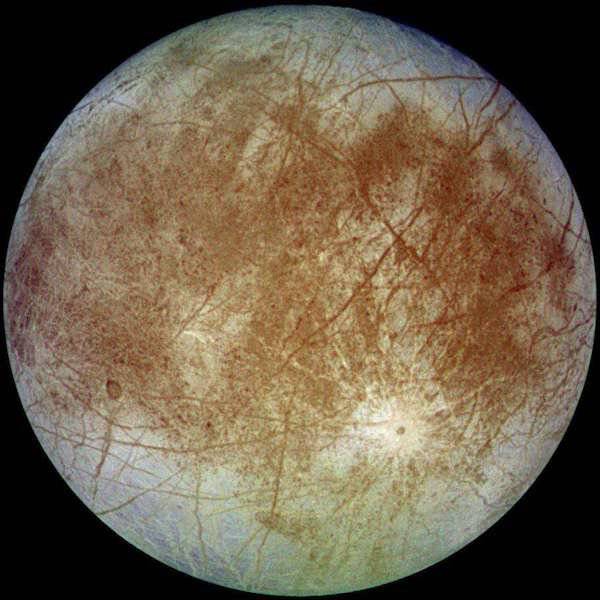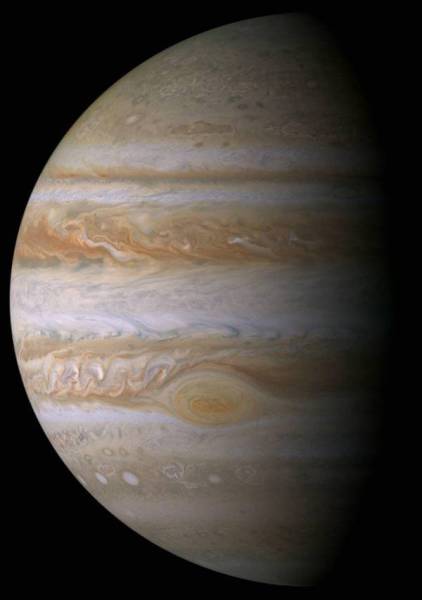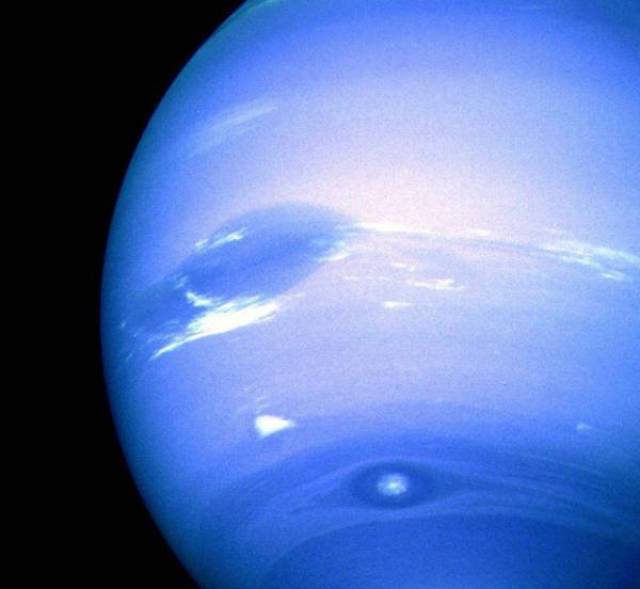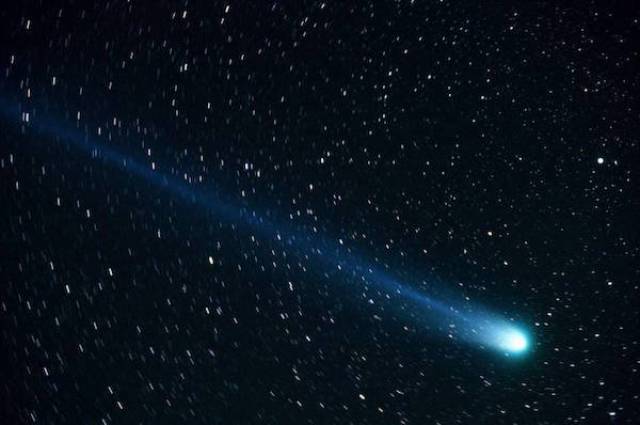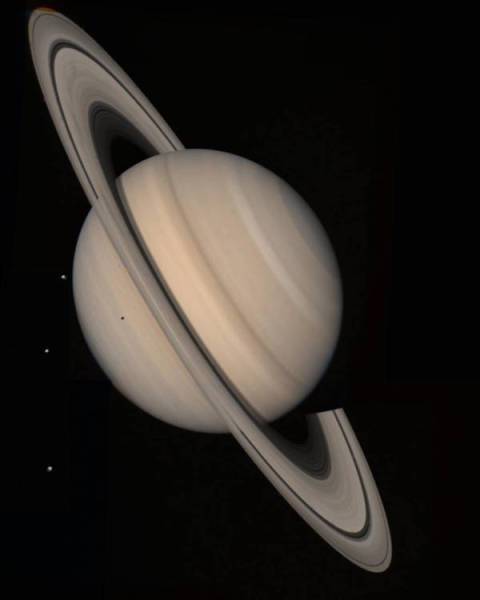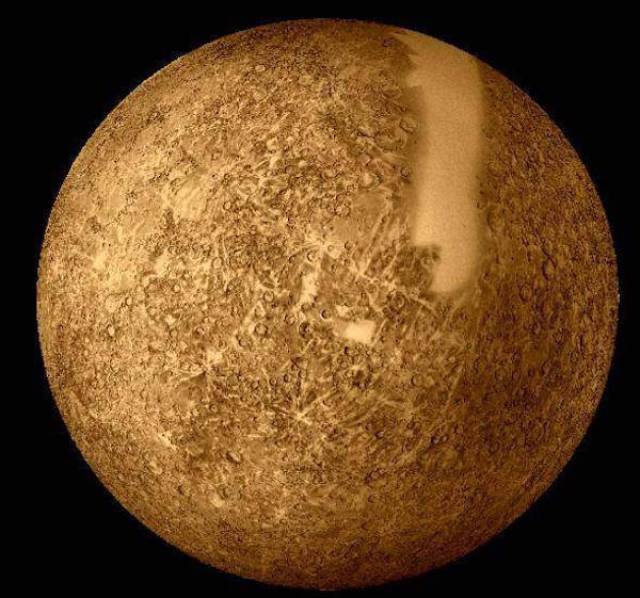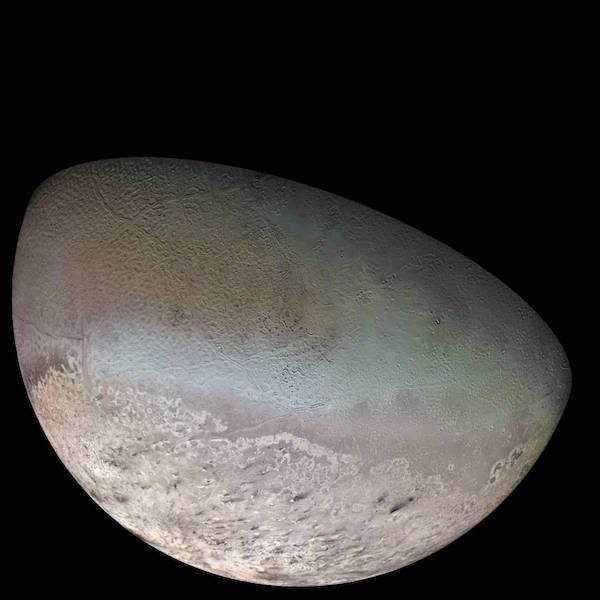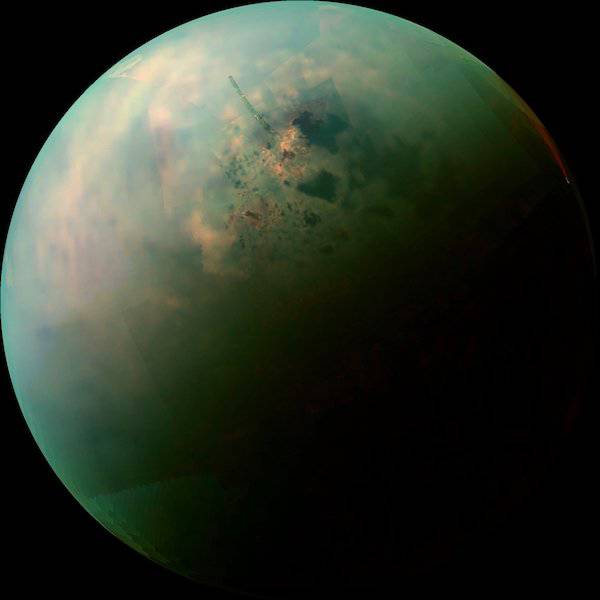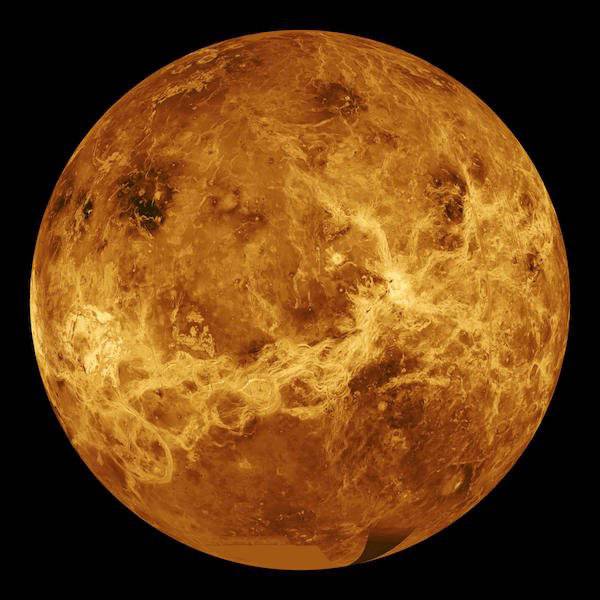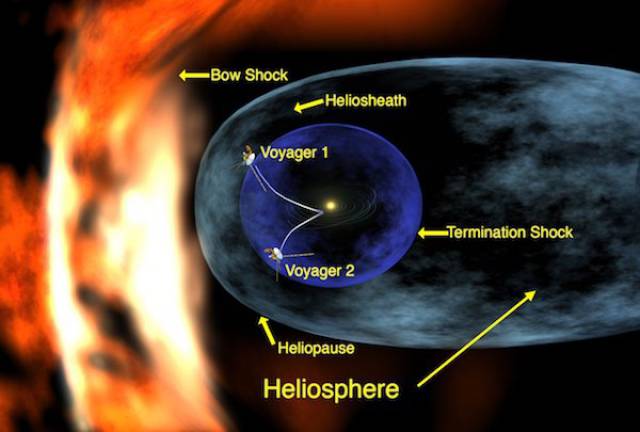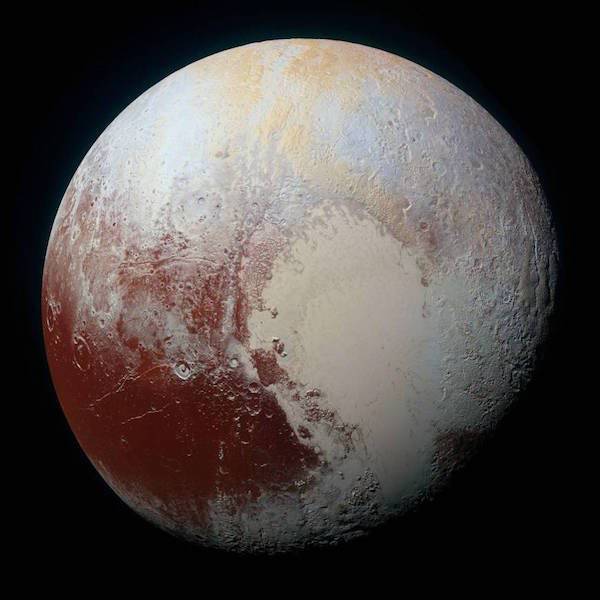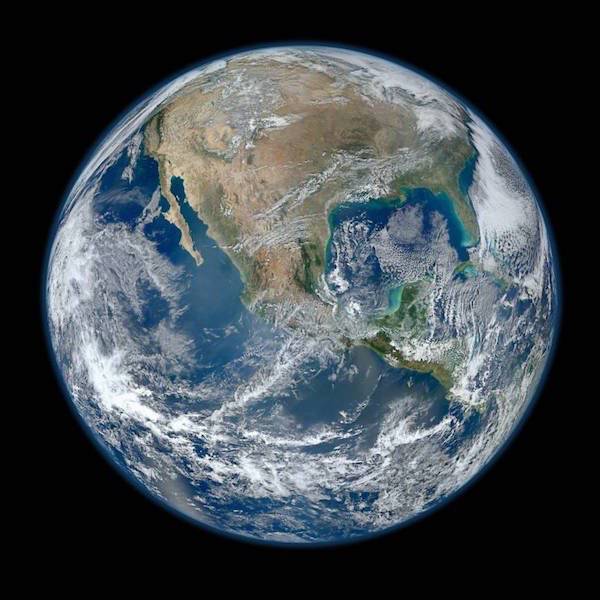Incinerated and Obliterated by a 4.4 Nonillion Lb Sphere of Flaming Gas
The surface of the sun is about 10,000 degrees Fahrenheit. It is, after all, a gargantuan sphere of flaming gas that's about 1.3 million times the size of Earth. If you were to stand on the sun (which you can't, because it's a giant ball of gas, not a solid planet), the searing heat would instantly disintegrate you. Your particles would be scattered by solarwinds.
Sliced to Ribbons and Shot into Space by Jets of Ice and Vapor on Enceladus
Enceladus, one of Saturn's moons, is surrounded by a layer of ice, but this ice isn't frozen to the planet. Rather, it exists as a sort of atmosphere. Because jets of water spew through the ice from time to time, scientists theorize that a massive ocean covers the moon's surface. Sounds kinda cool. But also kind of like a death trap. Because the moon is littered with hydrothermal vents that spew water vapor and ice at about 800 miles per hour. If the ice shards don't rip you apart, the water vapor would send you spiraling into space.
Annihilated by the Molten Seas and Abusive Radiation of a Pizza Moon
Io, one of Jupiter's moons, is the most volcanically active body in the solar system. What does that mean? Well, it's covered in molten lava, and enormous volcanoes are known to spew jets of searing magma nearly 200 miles high. There's so much lava, in fact, that most of the Io's surface is liquid. It's basically hell floating in space. In addition to the volcanic hellscape, Io boasts lakes of molten sulfur, intense radiation, and massive electric currents. Which makes it sound like a nuclear bomb made out of lava. Although NASA claims the planet looks like a pizza.
Chilled to the Bone by the Frozen Oceans of Europa
Europa, another of Jupiter's moons, is the flip side to sister moon Io. While Io is slathered in thick, blistering magma, Europa is encased in ice, like a glass marble floating in space. NASA theorizes that salty oceans and an iron core, just like those of Earth, exist beneath Europa's icy shell, but the moon is far from hospitable. Even if you made it through the ice shell - which you probably wouldn't because, what, you're gonna bring a giant auger with you to space? - you'd die in an instant in a place so cold salt water oceans freeze.
Imploded and Electrocuted Amidst Jupiter's 300-year-old Storms
If you were sucked into Jupiter's gravity, you'd be crushed by the most awesome force of pressure in the solar system. Scientists believe the liquid hydrogen ocean inside Jupiter is under so much pressure that electrons are squeezed off hydrogen atoms, making the liquid electrified. The atmosphere of Jupiter is also home to some tremendous storms, including the Great Red Spot, which has been raging for more than 300 years, is twice the size of Earth, and has winds traveling at about 270 miles per hour. When you head to Jupiter, expect to implode, and be obliterated by merciless storms or zapped in an electrified lake.
Eviscerated by Flying Ice Shards on Neptune
Neptune is so far from the sun - about 2.8 billion miles - it takes it 165 years to make a single pass around the star. An ice giant, the mammoth planet's atmosphere contains swirling water and shards of ice. Neptune also has wind gusts reaching speeds of 700 miles per hour. At that speed, the wind itself would flay you. The ice in the atmosphere is a nasty little bonus weapon.
Destroyed Riding a Comet in a Blaze of Glory
There's no good way to ride a comet. If you're far from the sun, you'll freeze in the lonely vacuum of space. If you're close to the sun, you'll get caught in the flaming gas trail following the comet, and cook like beef jerky under a blow torch. If you enter a planet's atmosphere, you'll die, either from the horrors of the planet itself, or by crashing into the surface. The consolation prize is you get to go out looking like Major Kong riding the bomb in Dr. Strangelove.
Ripped to Shreds by the Calamitous Winds of a Gas Giant
Saturn sure is beautiful. The rings, the swirling colors, the light breeze. Yes, as it turns out, winds on Saturn gust at about 1,118 miles per hour. So, if you're scared of being crushed to death by the pressure within this gas giant, don't worry. You'll be ripped to shreds by the wind before you implode.
Frozen and Fried on a Space Potato
Mercury has almost no atmosphere, meaning you'd suffocate on the vacuum-like planet . However, good news - you wouldn't live that long, thanks to the extreme temperatures. The side of Mercury facing the sun reaches 800 degrees Fahrenheit, while the side facing away from the sun gets pretty damn cold. As in, -290 degrees Fahrenheit. Basically Mercury treats your body like a fast food restaurant treats food - freeze it then fry it. Which is ironic, since Mercury kind of looks like a potato.
Turned into a Popsicle on the Coldest Moon in the Solar System
Neptune got a little greedy in the satellite sweepstakes, and ended up with 13 moons. One of these moons, Triton, is among the coldest places in the solar system, with surface temperatures of around -391 degrees Fahrenheit. For comparison's sake, 0 degrees Kelvin, the coldest possible temperature, at which atoms stop moving, is about -460 degrees Fahrenheit. Triton is also one of four volcanically active bodes in the solar system; it's pockmarked with cryovolcanoes, or, volcanoes that spew ice and ammonia. If Io is hell, Triton is its frozen equivalent. You'd freeze immediately, and you might get eviscerated by ice flying from a cryovolcano.
Frozen and Drowned in Titan's Methane Lakes
Titan is a strange place. Its atmosphere contains methane, which is typically burned up by the sun. Since Titan gets a fair amount of sun, it must have a natural sources of methane to replenish its supply. Know what else is interesting? Methane, a gas, turns to liquid at about -260 degrees Fahrenheit, and the surface temperature on Titan hovers around -290 degrees Fahrenheit. So, you'll definitely freeze to death, but, somewhat uniquely, you may get to do so in a rushing river of methane. If you somehow survive the temperature, you may drown in methane, or in jets of water shot from cryovolcanoes.
Crushed, Cremated, and Suffocated on Lovely Venus
Venus's thick, tempestuous atmosphere has turned the planet into a scorched wasteland, trapping extreme heat, pressure, and toxic gas. Surface temperatures exceed 880 degrees Fahrenheit, hot enough to melt lead, and the air pressure on Venus is 90 times that of Earth. There are also lava plains. So. Venus would crush, suffocate, and incinerate you simultaneously, in probably less than 10 seconds. And that's assuming the sulfuric acid in the atmosphere doesn't destroy you before you get to the planet's surface.
Minced in Searing Solarwinds En Route to the Heliosphere
A magnetic bubble called the Heliosphere surrounds the solar system, and contains the cosmic bodies and solar winds within. To get there, you need to pass through something called Termination Shock, which is the point at which solar wind blowing out from the sun encounters astral wind, and abruptly slows down. Previous to reaching the Termination Shock, solar winds travel at about 1,500,000 miles per hour. If you make it through winds strong enough to tear apart the primordial matter from which you formed, you'll suffocate and freeze in the nothingness of the Heliosphere.
Cold and Alone on Pluto
A dwarf planet stuck at the fringes of the solar system, Pluto is about 3.7 billion miles from the sun. It must get very lonely. And also very, very cold. Average temperatures hover around -390 Fahrenheit, only one degree warmer than Neptune's frigid moon, Triton, and only 70 degrees warmer than absolute zero, a temperature so cold it's essentially impossible. There are a lot of places to die, but none of them are as lonely and sad as Pluto, where you would die the most existentially crippling death in the solar system.
How You're Actually Going to Die on Earth
In nearly every case, horrible deaths throughout the solar system occur in a matter of seconds. Not so on Earth. On your home planet, you have the luxury of dying slowly thanks to disease, torture, poisoned water, black lung, poverty, and countless other things. Even quick deaths on Earth, from beheading to elephant trampling, take a lot longer and are far more painful than imploding in a matter of seconds on Venus or freezing in an instant on Pluto.

